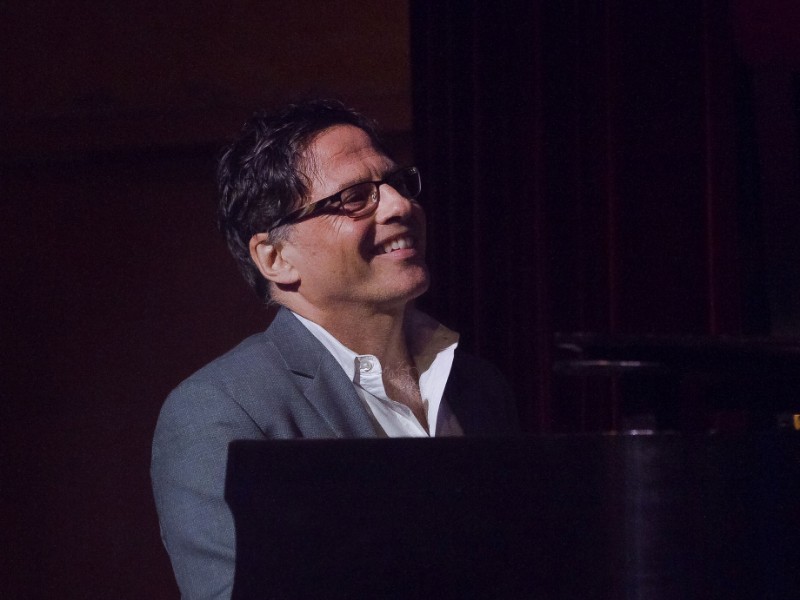Ron Davis’ third album in his Symphronica series, SymphRONica UpfRONt, has been nominated for a Juno award in the instrumental album of the year category.
Although a fusion of classical music and jazz, the album tends to lean towards the jazz side. All the musicians on the album, including Davis on piano, come from classical and jazz backgrounds.
Over the past two decades instrumental music has been marginalized in popular culture, and most music that’s released today is vocal, Davis said. With the Symphronica series Davis is countering that trend.
UpfRONt, produced by Symphronica double bass player Mike Downes, is a collection of six original compositions by Davis, along with tunes by Sammy Lerner, Miles Davis and others.
The Miles Davis tune on UpfRONt, “So What,” is an example of cool jazz. In connection with the song, Davis related a memory of his mother, Alice, a Holocaust survivor. “My mother, she would always ask me, ‘How come you’re not famous like Miles Davis? We have the same name,’” Davis said. “Honestly, she would always ask me that.”
UpfRONt does include one vocal, “Nina,” written by Paolo Conte and sung by Davis’ wife Daniela Nardi. “I’m proud of how beautiful that track is. It’s deeply emotional just like Daniela,” Davis said.
Nardi – whose album Espresso Manifesto was co-produced by Davis – and Davis will be walking the red carpet at the 2020 Juno Awards ceremony in Saskatoon on March 15. “Getting the nomination does add some fuel into the engines of Symphronica progress,” Davis said.
Since 2001, he’s released 12 critically acclaimed albums, and he’ll be up to No. 13 with the release in May of the fourth recording in his Symphronica series, The Instrumental Music Liberation Front.
“This new record is meant to be a shot across the bow of the music industry, to regain the place of instrumental music,” he said. “With this record, I have more than ever embraced classical music because that’s the other genre of music, along with jazz, that’s been marginalized.”
Davis’ recordings are accessible, but he said accessibility isn’t a strategy to attract listeners. “It’s the way I hear music. It is entirely organic. It’s not closed and brainy and very theoretical as some jazz can be.”
He never forgets that music is entertainment, he said. “It’s more than entertainment, but it is entertainment,” Davis said, adding that many of the jazz greats, like Louis Armstrong and Dizzy Gillespie, were also entertainers.
People who think they don’t care for jazz often enjoy performances by Davis and his band. Some have told him, “You know I don’t listen to jazz but that was great.”
Davis is a classically trained musician who began playing jazz in the 1970s, before it was taught at universities and colleges. One of Davis’ influences was his teacher, Darwyn Aitken, a jazz and classical player whose students included prominent Canadian jazz pianists like Joe Sealy and Nancy Walker.
“We developed our technique with Chopin and Debussy and we learned jazz theory, but when it came to jazz, he would just invite us to play what we were working on, give us suggestions or tips, maybe just show us a technique or two. He really fostered and nurtured jazz playing from the inside,” Davis said.
He added that Aitken was ahead of his time, not putting barriers between jazz and classical music. “He was equal opportunity between jazz and classical and other music,” Davis said.
“Time has caught up with that view and now there’s more ecumenism about music. It’s harder to find people who are snobbish about one particular type of music or genre.”
Davis’ new album will be released at the 918 Bathurst Centre for Culture at 8 p.m. on May 23. For advance tickets ($20), visit bemusednetwork.com. Visit rondavismusic.com for more information.
